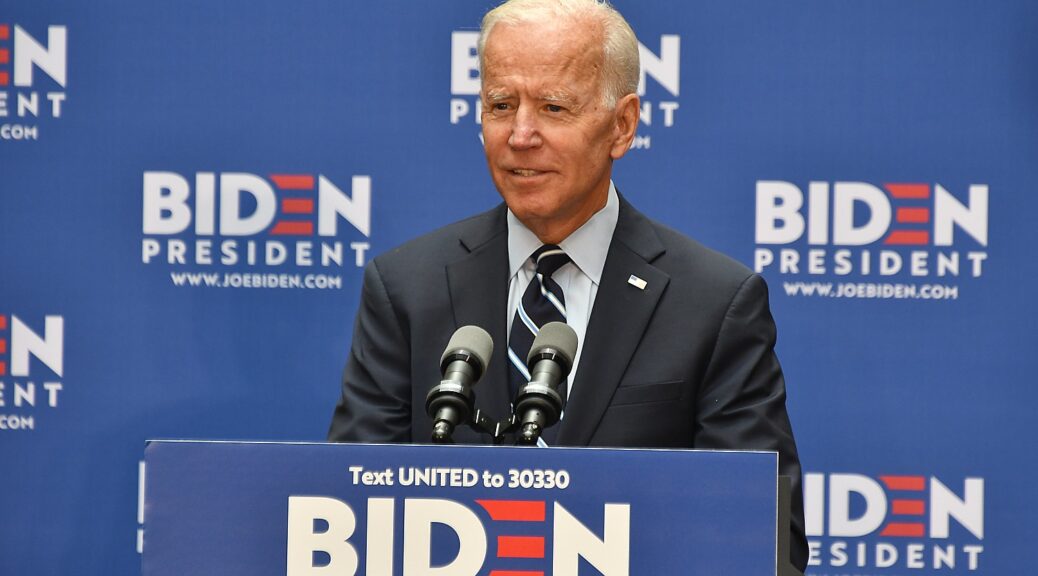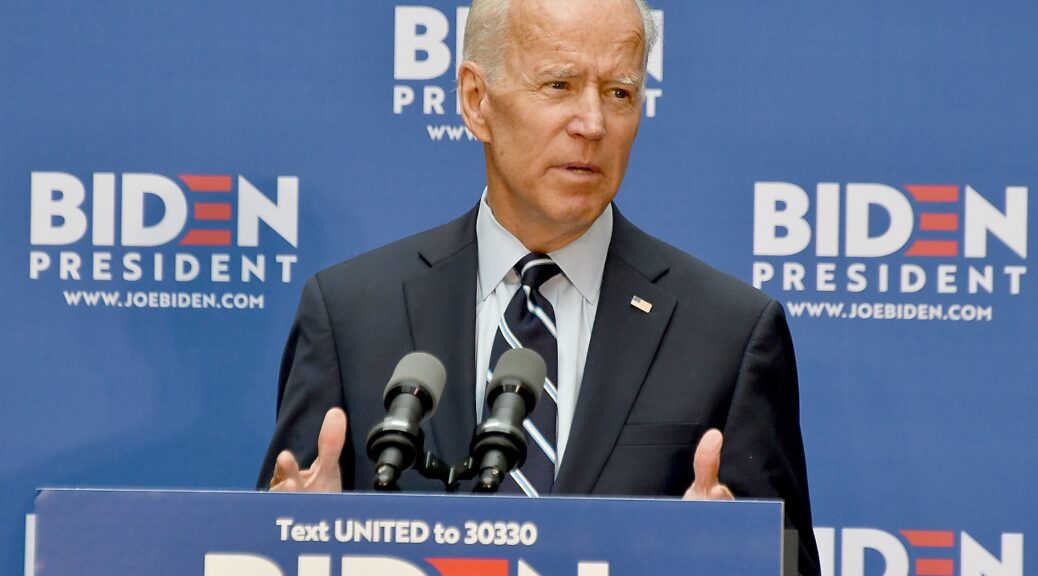
As the unprecedented number of Americans filing unemployment claims rose once again, Joe Biden, the presumptive Democratic candidate for president, announced a new plan to transform unemployment insurance into Employment Insurance for millions of workers by getting all 50 states to adopt and dramatically scale up short-time compensation programs.
Vice President Biden released the following statement on today’s unemployment claims and his new plan on scaling up employment insurance:
Today, we learned that another 5.2 million people have filed unemployment claims, bringing the total to more than 22 million in the last month.
This dire economic dislocation stems from the need to protect public health through strong social distancing measures. But let’s not forget: these measures are required to the extent they are because we didn’t prepare early enough, and when the virus surfaced in our communities, we didn’t test sufficiently to contain it. This pain is a product of poor decision making by Donald Trump.
With true American spirit, workers did not hesitate to sacrifice to save the lives of fellow citizens. But even as we temporarily shrink economic activity, there’s no reason why the incomes of working people must shrink, too.
As we navigate this crisis, our paramount economic priority must be to make American workers whole, so they retain their income and benefits during this period of social distancing. For the workers that are laid off, we should swiftly compensate for lost wages and health benefits for all of them, not just those who can make it through the bureaucracy.
But we should also be doing more — much more — to reduce the number of people who are laid off in the first place. We should be committed to keeping as many people as possible attached to their employment, so they can easily return to work when appropriate, and maintain their income and benefits.
This is more than just the right thing to do — it is the surest road to a rapid recovery, because the faster everyone returns to their jobs, the faster we can improve demand and get our economy running again.
The Trump Administration has been given a number of extraordinary tools to make this happen — to keep people employed. Yet, they are failing to use them effectively. For more people to stay in their jobs, Donald Trump has to do his job.
As this crisis continues to unfold, I will be putting forward ideas to not only better address the immediate needs of working Americans, but also what is needed for long-term, structural reform to make our economy work for all its people.
So today, as we see these chilling numbers of job losses — each one a mother or father, a neighbor or friend, a proud, hardworking American — I am calling for a bigger and bolder approach to keeping people on the job in times of crisis. That idea is called “short-time compensation” or “work-sharing.” I call it Employment Insurance.
The Biden Plan to Scale Up Employment Insurance by Reforming Short-Time Compensation Programs
Transform unemployment insurance into Employment Insurance for millions of workers by getting all 50 states to adopt and dramatically scale up short-time compensation programs. Under short-time compensation — also known as work sharing — firms in distress keep workers employed but at reduced hours and the federal government helps make up the difference in wages. The Obama-Biden administration championed this approach in the U.S., and so far 27 states have established short-time compensation programs.
These programs must become more flexible and attractive to both employers and employees, so that as many workers as possible can remain attached to their jobs and receive full wages and health benefits during crisis times, even if employers must significantly cut their hours.
Germany has long used short-time work programs to protect jobs in recessions, so that workers are ready to hit the ground running as the economy improves. And this approach is especially well suited to the current moment, when we can expect a more gradual recovery in certain sectors, with some businesses operating a partial capacity for an extended period.
In short, we should start thinking of this as Employment Insurance more than Unemployment Insurance.
For the current crisis, the administration should move rapidly to scale up short-time compensation to save or restore millions of jobs. Specifically:
Small businesses who use this program must be able to get help to cover their worker’s benefits as well as their other costs, like rent and non-payroll overhead, as they are partially shut down through the crisis. Companies that fulfill the goal of payroll protection by using work sharing should not be punished by being excluded from any small business program for loans or forgiveness that is tied to essential overhead in proportion to their fall in revenues.
The federal government should temporarily waive the need for states to “experience rate” companies, that is, force employers to pay higher taxes in the future if they use short-time compensation now.
These are crisis measures, but we can and should do more to strengthen short-time compensation to prevent layoffs in future downturns, learning lessons from other nations and from those states in America that have been leading the way.
As President, Joe Biden would pursue permanent reform of short-time compensation, through the following steps:
Establish 100% federal financing: Currently, states bear the burden of paying for short-time compensation, except in emergencies. Yet, state unemployment funds are already straining under the burden of unprecedented numbers of unemployment claims. Joe Biden would call for short-time compensation to be 100% permanently funded by the federal government to catalyze far greater use of short-time compensation that can keep workers working and connected to their benefits and work relationships.
Secure participation from all 50 states, DC, Puerto Rico, and the Virgin Islands: 23 states still have not established short-time compensation programs. This initiative is too important to leave out millions of Americans. Joe Biden would make it a top priority, using a mix of conditioned assistance and additional incentives, to ensure universal participation, consistent with Supreme Court precedent in Dole and Sebelius.
Create a tax credit for employers’ extra health care costs: Employers must currently provide full health benefits for employees even if they are reducing hours. While it is crucial that employees keep their full benefits, having to fund the full health care costs of workers when they are seeing a significant fall in revenue can discourage companies from choosing short-time compensation over layoffs. Joe Biden would create a refundable tax credit that would reimburse companies as well as non-profits for the extra costs of providing full health benefits of all their workers during a period of work hour reductions.
Raise caps on employer work reductions: States usually cap work hour reductions at 40% to 60%. If your hours go down more than that, you can’t participate. In deep downturns, companies may need to reduce hours even further to prevent layoffs. Raising those caps to 80%, with waivers for extreme circumstances, will help employers keep people in their jobs, even in severe recessions.
Launch a major awareness campaign to improve business participation rates. During the last recession, Rhode Island had much greater participation in its short-time compensation program than the national average. One study from the Brookings Institution found that the chief reason for that was that the state “aggressively marketed work sharing to employers engaged in layoffs during the Great Recession and made use of the media to highlight potential work-sharing benefits.” Joe Biden would take a Rhode Island-style marketing campaign nationwide.
Build automatic triggers based on economic and public health conditions. Enhancements to short-time compensation and unemployment insurance tied to the COVID-19 crisis should be automatically extended based on economic and health conditions, and renewed in future crises. Workers and businesses should not be held hostage by partisans in Congress.



